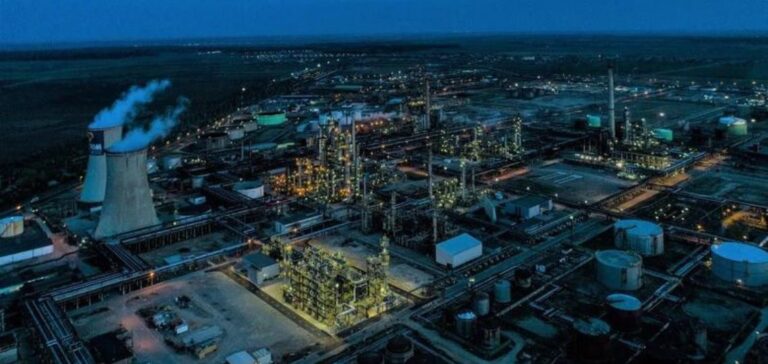OMV Petrom accelerates its transformation with a major investment of almost 750 million euros at its Petrobrazi site in Romania. The ambitious goal is to make this refinery the region’s leading producer of sustainable fuels. According to Christina Verchere, CEO ofOMV Petrom We are taking a decisive step forward in our transformation towards low-carbon energy. In addition to our new renewable energy projects, we are committing major investments to decarbonize transport in Romania. Between now and 2030, we will devote 11 billion euros to transforming our business from a sustainable perspective, both in Romania and in neighboring countries.”
A new state-of-the-art biofuels plant
At the heart of this massive investment is the construction of a state-of-the-art unit dedicated to the production of sustainable aviation fuels (SAF) and renewable diesel (HVO), at a cost of 560 million euros. With an annual production capacity of 250,000 tonnes, this ultra-modern, flexible facility will be able to adjust its production mix according to market demand and raw material availability. The plant will also generate bio-naphtha and bio-GPL for use in the chemical industry.
Green hydrogen at the heart of the process
Two green hydrogen production units with a total capacity of 55 MW, representing an investment of around €190 million, including €50 million from European funds, will complete the industrial facilities. With an estimated annual production of 8,000 tonnes, this renewable hydrogen will be integrated into the biofuel manufacturing process, enabling a reduction of at least 70% in CO2 emissions compared with conventional fuels.
Securing sustainable supply
To ensure a sustainable and responsible supply of raw materials, OMV Petrom has acquired a 50% stake in “Respiră Verde”, Romania’s leading used edible oil collector. Every year, the company recovers up to 10,000 tonnes of oil from catering and supermarket chains, guaranteeing a local source of biomass.
A committed regional energy player
As the main contributor to the Romanian state budget, with 42 billion euros in taxes and dividends paid out since 2005, OMV Petrom is reaffirming its role as a driving force in the Balkans’ energy transition. Between now and 2030, the Group plans to invest 11 billion euros in low-carbon energy, in line with European climate objectives. Backed by 43% Romanian shareholders, including 20.7% state-owned, OMV Petrom is anchoring its new industrial developments in the heart of Romania. An approach that creates local jobs and contributes to Romania’s energy sovereignty. By integrating local production of 250,000 tonnes of sustainable biofuels from 2028, OMV Petrom will substantially reduce imports of petroleum products and strengthen the security of energy supply for the country and the region. A major strategic challenge at a time when geopolitical tensions are disrupting world hydrocarbon markets.






















